What is Artificial intelligence? This is a common question in this modern technology world. At this time day by day using technology is growing with new innovations. AI is a most important development shaping the future of how the value humans think and analytics capabilities.
AI is already becoming a fundamental part of our everyday use of smart devices. We can talk about virtual assistants like Google Assistant, Apple’s Siri, or Amazon’s Alexa, where the results come immediately by giving appropriate commands through voice.
Its shaping needs technologies like machine learning, natural language processing, and speech recognition. It also uses impure algorithms, which teach smart devices to constantly bring more relevant results based on user usage. In this blog post, we will discuss step by step about Artificial intelligence. let’s read attentively and gain knowledge about AI technology.
What is artificial intelligence? (AI)
If a machine can artificially think and make decisions the way humans think and make decisions, then that machine’s intelligence is called artificial intelligence. In other words, artificial intelligence is the simulation of human intelligence in a machine, especially a computer system that can think like a human and make decisions. Which is created by computer programming.
Such as self-driving cars, Google’s AlphaGo, and IBM’s Deep Blue System. Also, examples of AI are speech recognition, expert systems, natural language processes, and image recognition.
Who is the father of artificial intelligence?
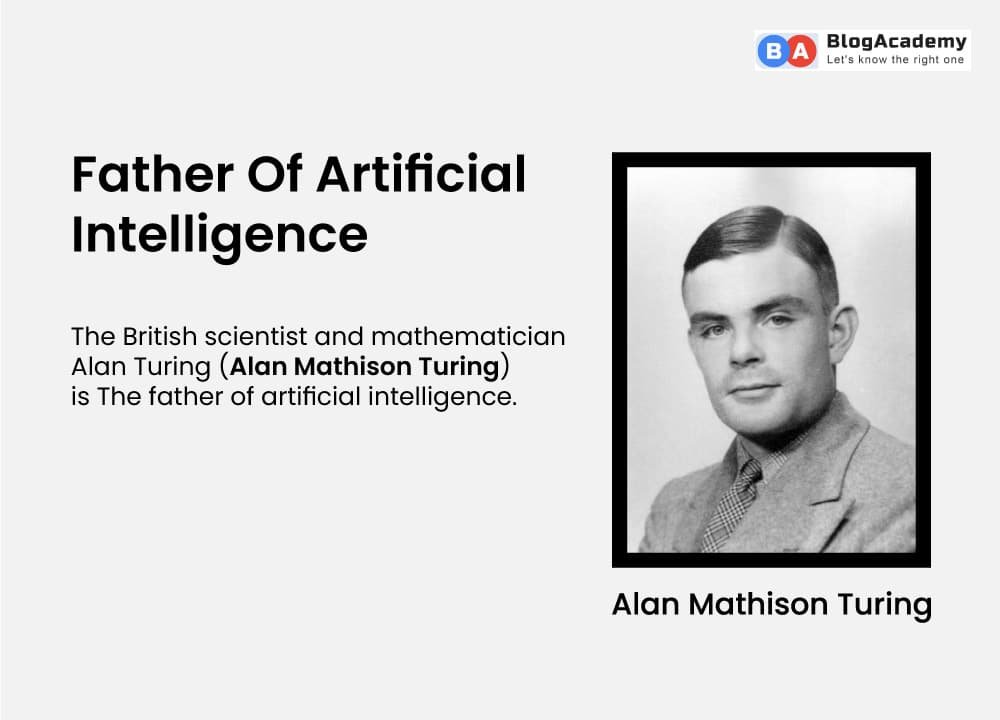
The British scientist and mathematician Alan Turing (Alan Mathison Turing) is The father of artificial intelligence. In 1950 his discovery of the “Turing Test” set the foundation for the concept of AI.
Intelligence is a key part of our brain that unites learning, problem-solving perception, understanding language, reasoning, etc. For a machine or software to gain at a higher level, artificial intelligence needs the following:
- Mathematics
- Biology
- Psychology
- Sociology
- Computer Science
- Neuron studies
- Statistics
The destinations and targets of AI include learning, reasoning, and perception. The ideal characteristic of AI is to make decisions through the science of reasoning to achieve a specific destination.
How does artificial intelligence work?
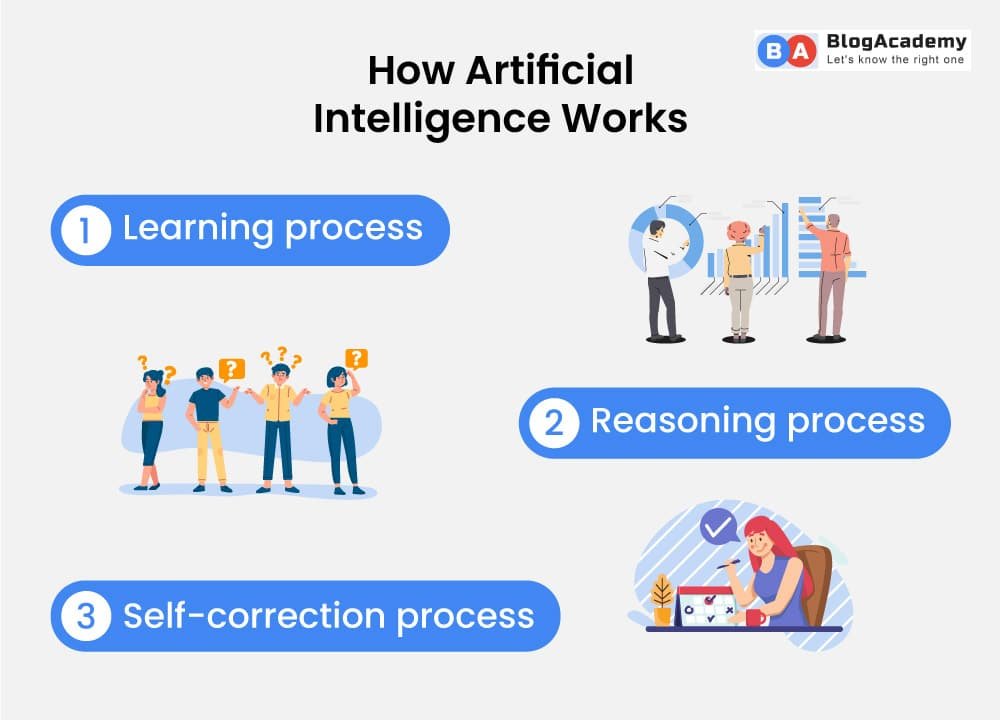
Artificial intelligence works as a promoter of vendors’ accelerated scrambling products and services. AI is made to be the foundation of specialized hardware and software for writing and training machine learning algorithms. It’s not a programming language but a few, of these, use Java, R, and Python which are popular in AI systems. AI works by ingesting big amounts of labeled training data analyzing the data for correlations and patterns and using these patterns to make predictions about future states.
The chatbot is a fed example of an AI system. It can learn to produce realistic exchanges with people or an image recognition tool to identify and describe objects. AI is based on three cognitive skills such as learning, reasoning, and self-correction.
Learning process:
Artificial intelligence focuses on acquiring data and creating rules on how to turn the data into actionable information. It’s called an algorithm that provides computing devices with step-by-step instructions on how to complete your specific task.
Reasoning process:
AI also focuses on choosing the right algorithm to reach the desired outcome. Reasoning is a significant part of the process of Artificial intelligence. It can be defined as the logical process of drawing conclusions to make a prediction approach towards a particular thought with the help of existing knowledge.
Self-correction process:
Artificial intelligence is designed to continue to fine-tune the algorithm and ensure it provides the most accurate results as much as possible. It provides a general theoretical framework to help the emergence of self-supervision and self-correction to change the moment’s fluctuations inherently present in the situation.
Types of Artificial Intelligence
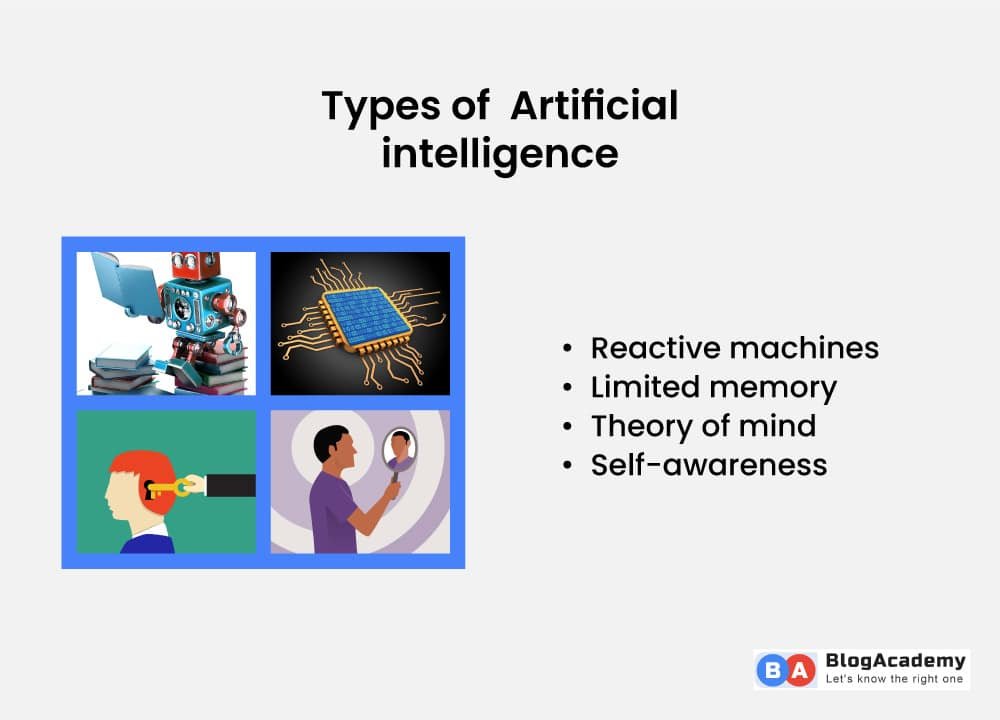
The AI is ably categorized into four types, beginning with the task-specific AI system using this and progressing to the reactive systems which can still exist. Here are the types as follows:
- Type 1: Reactive machines: This Artificial intelligence process has no memory and their task-specific.
- Type 2: Limited memory: This AI system has a memory so it can use past experiences to inform future decisions.
- Type 3: Theory of mind: Theory of mind is the Psychology term when AI has applied this system it provides the social intelligence to understand emotions.
- Type 4: Self-awareness: These AI systems have a sense of self, which gives consciousness. This type of AI system does not yet exist.
Artificial intelligence advantages and disadvantages
At this time innovation world is quickly moving forward with Artificial networks and deep learning AI technologies. AI processes massive amounts of data quickly and makes predictions more correctly than humanly possible. AI applications use machine learning to take data and quickly turn it into actionable information. The primary disadvantage of using AI is that it is very costly to process the large amounts of data that AI programming requires.
AI Advantages:
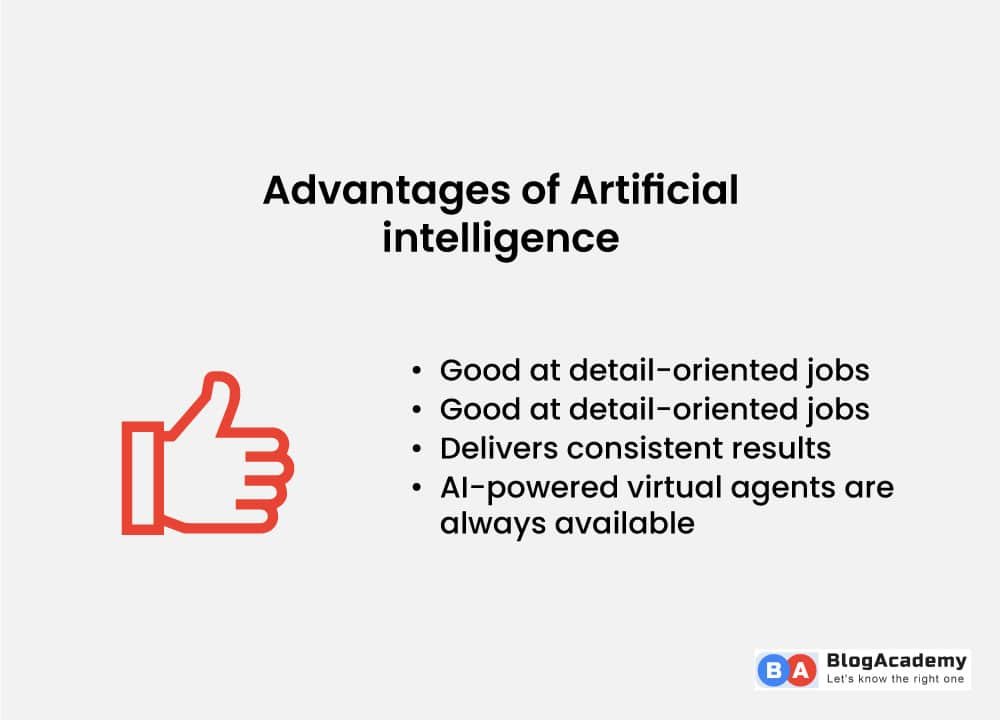
- Good at detail-oriented jobs: AI helps to get a detail-oriented job and get more powerful.
- Reduced time for data-heavy tasks: It improves work efficiency and Reduces the time for data-heavy tasks to accomplish a task in comparison to humans.
- Delivers consistent results: It introduces a new technique to solve new problems and delivers consistent results.
- AI-powered virtual agents are always available: AI Virtual agents are always helpful for the conversion of information into knowledge.
AI Disadvantages:
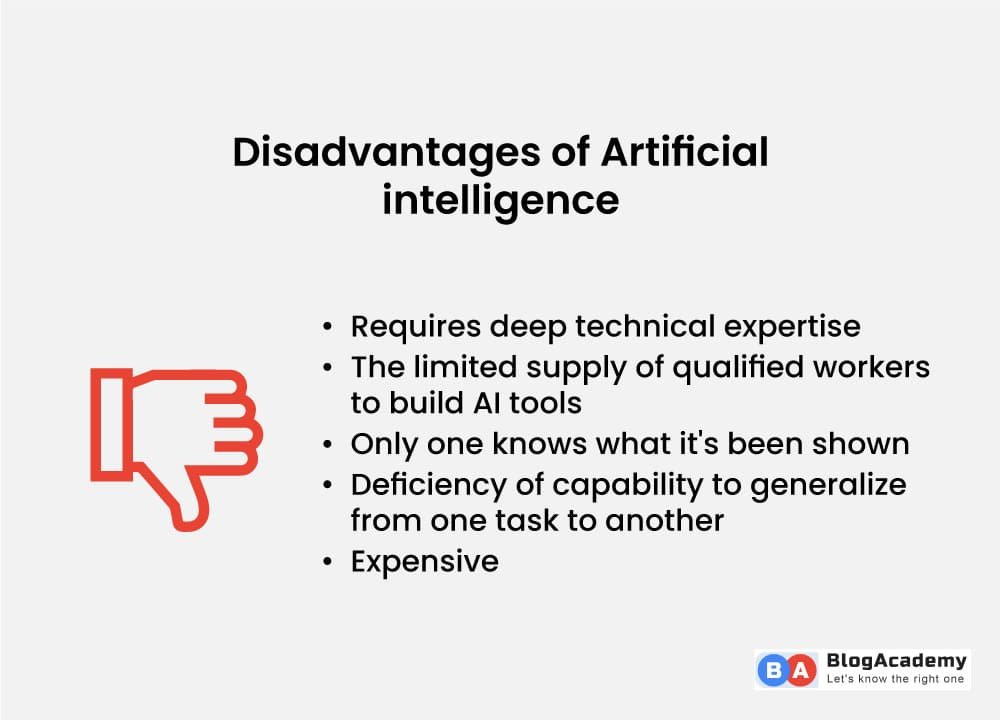
- Requires deep technical expertise: AI implementation Requires deep technical expertise
- The limited supply of qualified workers to build AI tools: AI has a limited supply of qualified workers to build tools it’s a big problem for its development
- Only one knows what it’s been shown: It is a major challenge Only one knows what it’s been shown no scope thinking creativity in the sense.
- Deficiency of capability to generalize from one task to another: AI has a deficiency of capability to generalize from one task to another
- Expensive: If you want to make the environment of AI requires plenty of time and resources and can cost a huge deal of money.
Conclusions:
AI is a most important development shaping the future. Its shaping needs technologies like machine learning, natural language processing, and speech recognition. Artificial intelligence basis on three skills such as learning, reasoning, and self-correction. Through this blog post, we have tried to explain What is artificial intelligence? and more details about it.



